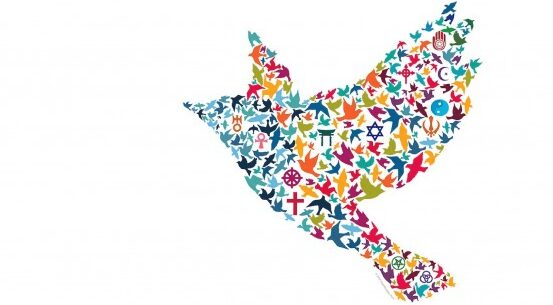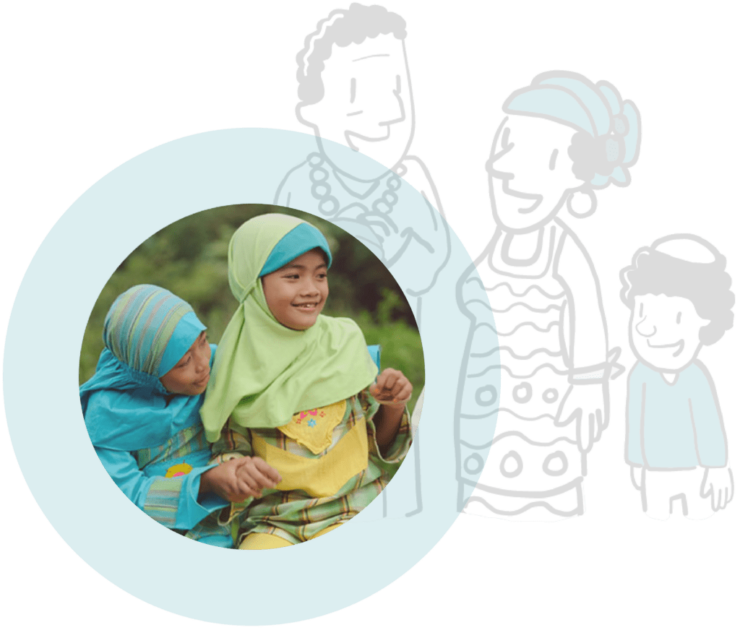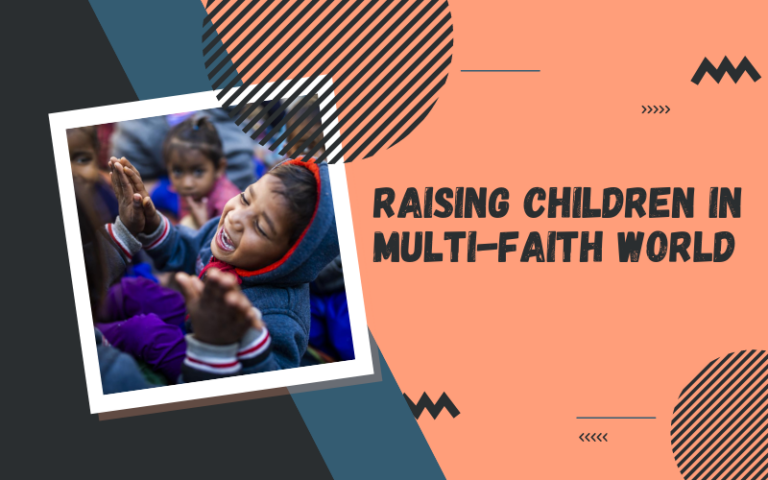If we are keen for our children to be well-educated and well-rounded individuals then we must find tools to assist them to navigate our complex multi-faith world with wisdom. The Pew Research Centre’s Forum on Religion and Public Life estimates that there are 5.8 billion religiously connected adults and children around the globe – that is 84% of the world population of 6.9 billion. They predict that this percentage will grow to 87% by the year 2060. Even within the small percentage with no formal religious connection, there are still many who hold spiritual beliefs.
Why Spiritual Wisdom Matters
If, as parents, we wish our children to understand human history, human culture and human values then we must help them to understand religion. If we wish them to be open, tolerant and wise adults then we must find a way to help them develop a religious understanding with openness, tolerance and wisdom.
For some parents, this will seem like an incredibly daunting task as the sheer diversity of religions and beliefs in the world mean that many parents are themselves unsure and insecure about the very notion of religion or spirituality. So where to begin?

Seven basic tools for developing multi-faith understanding in children
- Live with Integrity: If you have a religious conviction then live it – children are easily disillusioned if they see that you don’t practice what you preach
- Build Friendships: Get to deeply know a family or individual from a religion/belief other than your own
- Tell stories: Find beautiful stories from within the world’s religious traditions to share with your children
- Engage in Dialogue: Do not fear discussing the big issues of life (death, suffering, purpose) with your children
- Question Respectfully: Do not accept any belief blindly but question respectfully
- Encourage Open Minded Appreciation: Encourage your children to be open-minded and appreciative of diversity
- Support Multi-faith initiatives: Support your local/national interfaith organization if one exists in your area
Children are naturally curious and increasingly they will be sharing classrooms and playgrounds with children from diverse faith backgrounds. Playing together, learning together and simply being children together will mean that they already function in a multi-faith landscape. As parents, you can help them navigate this landscape with ease and enjoyment by encouraging there curiosity and natural open-heartedness.

Many city schools are already celebrating diverse religious festivals such as Hanukkah, Diwali, Eid, Christmas and Vesak but what if you live in a mono-cultural environment? Perhaps you live in a rural area with very little religious diversity; perhaps your child goes to a faith-based school where only one faith is on the curriculum; how then might you encourage respect and tolerance towards other faith traditions? One way to do this would be to find informative children’s books on world religions.
Seek out books written from the perspective of a person practicing that particular religion. Take time to read the books with your children and discuss the different faiths, making sure that you don’t unwittingly make comparisons that disparage another religion. If you are on vacation to a city or country where there are diverse places of worship, why not visit a local temple, mosque, synagogue or church that is not from your own tradition.
As children reach their teenage years they will be exploring the big issues of life and it is so important at this time to continue to support them in their quest for understanding the world around them. Science and religion are often painted as opposite ends of a spectrum whereas the reality is somewhat more nuanced.
Both have played and continue to play an important role in the development of human culture. For example, science has given us the tools to develop a nuclear bomb but it is our human values that help us decide whether to use it or not – and religion has historically been the most important institution in the development of such values.

Finally, as parents, it is important that you do not shy away from the subject of religion if you want your children to build a world that is an improvement on the one we have. Too many conflicts have arisen because of a lack of understanding – be fearless and help your children live in this multi-faith world with wisdom, understanding and integrity.

